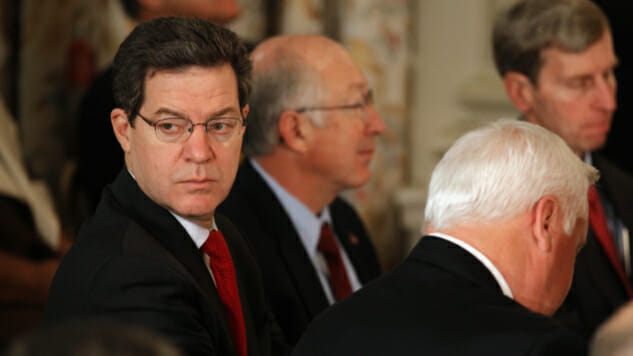Kansas Actually Has a Chance to Get Its Shit Together in Today’s Special Election
Photo by Chip Somodevilla/Getty
What’s the matter with Kansas?
Politically, everything. The problems illustrated by Thomas Frank in one of the best political books ever have only gotten worse in the decade and change since its publication. Sam Brownback, looming figurehead of the corporate-backed “populist” movement known as the Tea Party, became governor of Kansas in 2011, and brought with him a comprehensive mandate in one of the nation’s reddest states. He could do whatever the hell he wanted, and that’s exactly what he did, and Kansas became a living experiment in what happens when “small government” ideologues like Brownback have total control.
In short, he decimated the state. I highly recommend you spend some time reading the various excellent articles about how he led his state to total economic ruin, but here’s the situation short:
—With tax cuts for the wealthy, Brownback managed to deprive the state of $680 million in income tax revenue by 2016, and $570 million in total tax revenue, compared to three years earlier. This was caused in large part by massive cuts, and in some cases wholesale repeals, of taxes on LLCs.
-

-

-

-

-

-

-

-

-

-

-

-

-

-

-

-

-

-

-

-

-

-

-

-

-

-

-

-

-

-

-

-

-

-

-

-

-

-

-

-








































